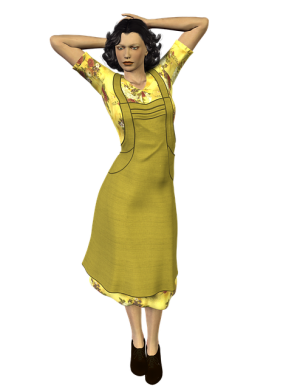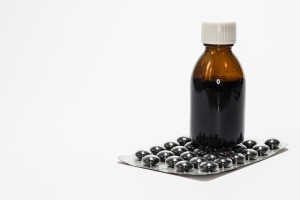atmosphere ![]()
[noun]
[de damp-kring. de damp-krin-gen]
 “Dampkring” is composed of “damp” en “kring”, which translate to “vapour” and “circle” respectively. The “vapour circle” around our planet is commonly known as the atmosphere 🙂 In Dutch, there’s also the synonymous “atmosfeer”.
“Dampkring” is composed of “damp” en “kring”, which translate to “vapour” and “circle” respectively. The “vapour circle” around our planet is commonly known as the atmosphere 🙂 In Dutch, there’s also the synonymous “atmosfeer”.
Examples:
– “Laten we wel wezen, ons klimaat verandert door de vervuiling van de dampkring.”
(“Let’s be fair, our climate is changing due to the pollution of the atmosphere.”)
– “Het zonlicht wordt gefilterd door de dampkring, anders zouden we levend verbranden.”
(“The sunlight is filtered by the atmosphere, otherwise we would burn alive.”)
– “Het buitenaardse ruimteschip drong de dampkring binnen. Het einde van de wereld zoals we hem kennen was nabij…”
(“The alien spaceship penetrated the atmosphere. The end of the world as we know it was near…”)
Expressions:
–
“Gelul in de ruimte“: loose talk, nonsense, crap, bullshit.
Example:
– “De kredietcrisis is de schuld van een wereldwijd
financieel-militair complex.” – “Gelul in de ruimte!”
(“The financial
crisis is to be blamed on a global financial-military complex.” –
“Bullshit!”)
Related words:
– Mist: mist [noun] [de mist, de misten].
– Hemel: heaven(s), sky [noun] [de hemel, de hemelen].
Example:
– “De zon staat hoog aan de hemel.”
(“The sun is high in
the sky.”)

 A “flater” is a stupid mistake in front of other people causing embarrassment. It’s more or less synonymous to “blunder”, which also translates to blunder, but the subtle difference is that a “blunder” is not necessarily witnessed by other people (causing the embarrassment).
A “flater” is a stupid mistake in front of other people causing embarrassment. It’s more or less synonymous to “blunder”, which also translates to blunder, but the subtle difference is that a “blunder” is not necessarily witnessed by other people (causing the embarrassment). An old-fashioned Dutch dinner consists of one simple course: beans or potatoes, meat and vegetables (see also Extra). Simple or not, there’s always the risk of spilling food on your clothes and making a bit of mess in the kitchen. That’s where an apron comes in handy, in Dutch a “schort“.
An old-fashioned Dutch dinner consists of one simple course: beans or potatoes, meat and vegetables (see also Extra). Simple or not, there’s always the risk of spilling food on your clothes and making a bit of mess in the kitchen. That’s where an apron comes in handy, in Dutch a “schort“. to cough
to cough